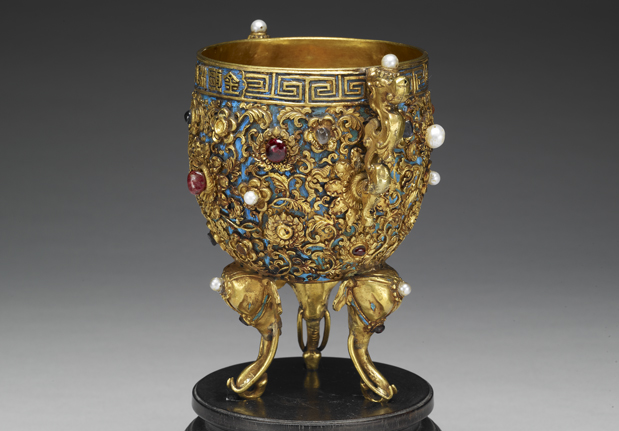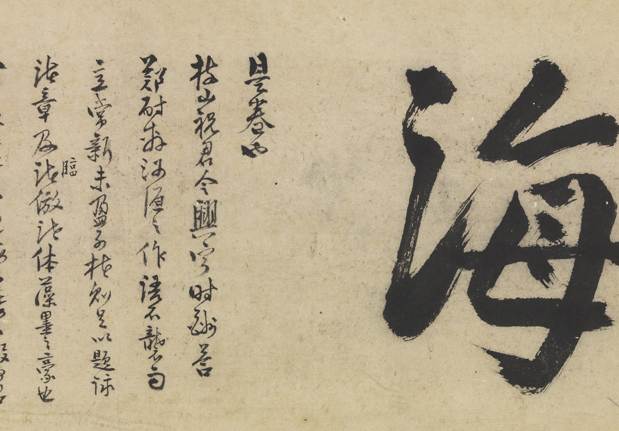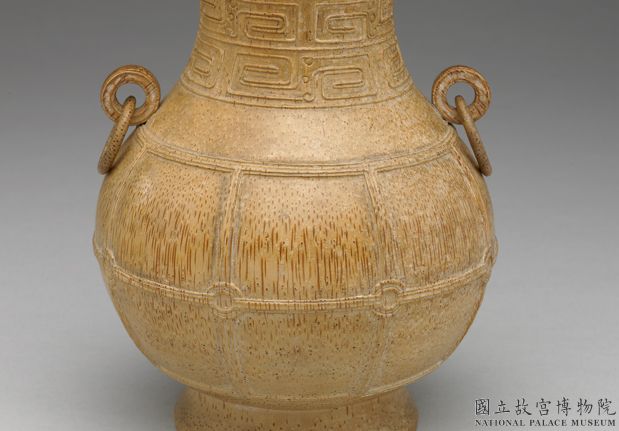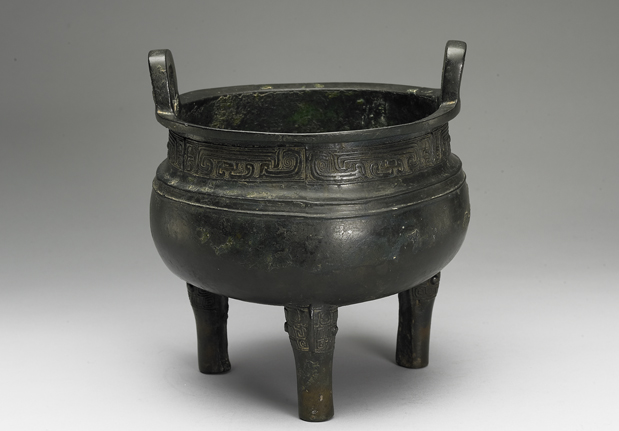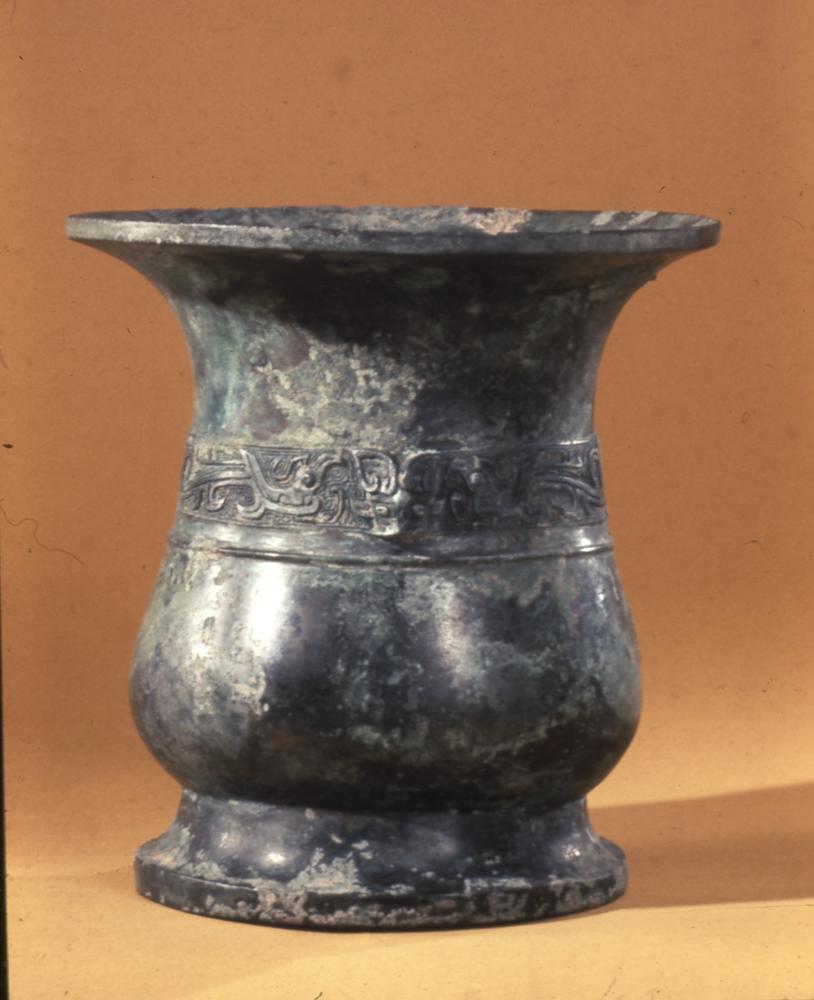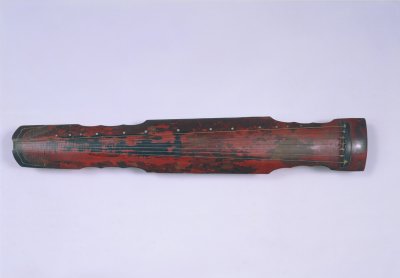Period:Ming dynasty Production date:1550-1644 (circa)
Materials:stoneware
Technique:glazed, applied,
Subjects:lotus leaf
Dimensions:Height: 23 centimetres
Description:
Stoneware Tradescant storage jar with applied decoration and remnants of green and yellow glaze. This ovoid jar has an inwardly tapering neck with a thickened mouth rim and a splayed foot. Attached at the shoulder are five ribbed loop handles for securing a cover. The base is flat and unglazed. A lotus scroll with sparsely placed leaves and four blooms, two seen from the side and two from above, is applied in relief with incised details and traces of a now degraded and iridescent green lead glaze remain with touches of yellow glaze.
IMG
![图片[1]-storage-jar BM-1914-0509.1-China Archive](https://chinaarchive.net/Ming dynasty/Ceramics/mid_00253594_001.jpg)
Comments:Harrison-Hall 2001:Such jars were used to export foodstuffs within South-east Asia. A jar of this type was recovered from an unidentified Asian trading vessel wrecked in the South China Sea, near the Philippines, at the end of the sixteenth or early in the seventeenth century. The present jar was discovered in the ruins of a pagoda at the ancient capital [i.e. Ayutthaya] of Siam [now called Thailand]. Indeed James McCarthy, the donor, proudly wrote in 1914, “There is a similar one at the British Museum but it is not so good” (see BM 1908,0220.2). Another jar with a related but more stylized design and preserved glaze is in the Tokyo National Museum. Further examples are in the Victoria and Albert Museum, London, in the Princessehof Museum, Leeuwarden, and the Brunei Museum.
Materials:stoneware
Technique:glazed, applied,
Subjects:lotus leaf
Dimensions:Height: 23 centimetres
Description:
Stoneware Tradescant storage jar with applied decoration and remnants of green and yellow glaze. This ovoid jar has an inwardly tapering neck with a thickened mouth rim and a splayed foot. Attached at the shoulder are five ribbed loop handles for securing a cover. The base is flat and unglazed. A lotus scroll with sparsely placed leaves and four blooms, two seen from the side and two from above, is applied in relief with incised details and traces of a now degraded and iridescent green lead glaze remain with touches of yellow glaze.
IMG
![图片[1]-storage-jar BM-1914-0509.1-China Archive](https://chinaarchive.net/Ming dynasty/Ceramics/mid_00253594_001.jpg)
Comments:Harrison-Hall 2001:Such jars were used to export foodstuffs within South-east Asia. A jar of this type was recovered from an unidentified Asian trading vessel wrecked in the South China Sea, near the Philippines, at the end of the sixteenth or early in the seventeenth century. The present jar was discovered in the ruins of a pagoda at the ancient capital [i.e. Ayutthaya] of Siam [now called Thailand]. Indeed James McCarthy, the donor, proudly wrote in 1914, “There is a similar one at the British Museum but it is not so good” (see BM 1908,0220.2). Another jar with a related but more stylized design and preserved glaze is in the Tokyo National Museum. Further examples are in the Victoria and Albert Museum, London, in the Princessehof Museum, Leeuwarden, and the Brunei Museum.
© Copyright
The copyright of the article belongs to the author, please keep the original link for reprinting.
THE END
